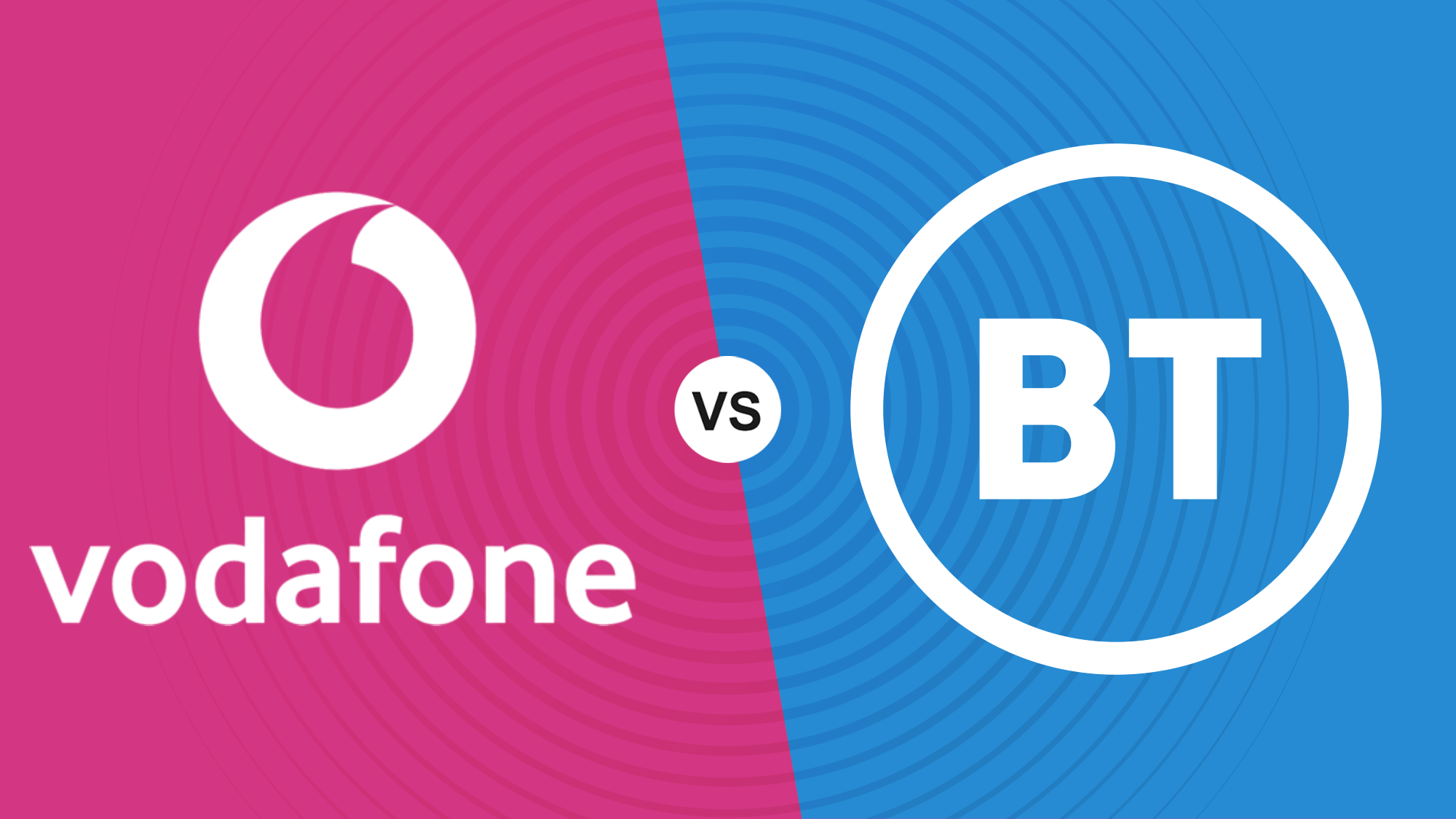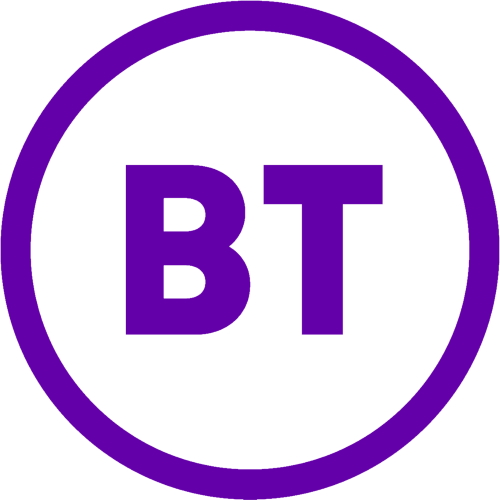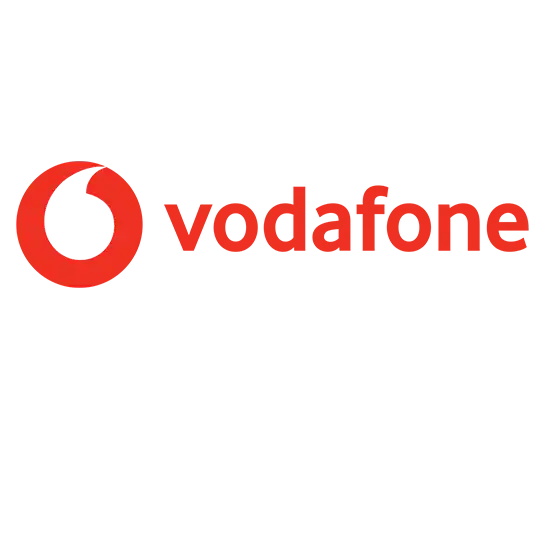Vodafone vs BT: which is the better broadband provider?

Sign up for breaking news, reviews, opinion, top tech deals, and more.
You are now subscribed
Your newsletter sign-up was successful

ADSL: Yes (only if you can't access fibre)
Fibre: Yes
Full Fibre: Yes
TV bundles: Yes
BT is the most popular internet service provider in the UK. This is because the company offers a fantastic selection of deals, including ADSL, fibre and Full Fibre options via the ever-reliable and widely available Openreach network. Plus, BT also offers a number of TV and broadband bundles for customers that include a great range of channels. However, BT isn't flawless. The company's deals do sit at the more expensive end of the market and its contracts last for either 12 or 24 months. Plus, EE is now becoming the flagship broadband provider of the BT Group, so some of the company's best deals may soon be offered by EE instead.
Pros
- Fantastic choice of speeds
- Good internet and TV bundles
- High-spec router
Cons
- Deals can be expensive
- Long contracts
- Quickest packages now offered by EE

ADSL: No
Fibre: Yes
Full Fibre: Yes
TV bundles: Yes
Vodafone is a no frills provider that's known for offering some of the cheapest fibre broadband deals on the market today. Although the company doesn't offer an ADSL option at all, it does offer a great selection of packages that range between 38Mbps and 910Mbps, as well as a range of Xtra and Pro II packages. However, the company's customer service offering has been continually found wanting and its TV packages, which are available through Vodafone Xtra, leave something to be desired.
Pros
- Cheap fibre tariffs
- Gigabit speeds available
- Excellent router and tech
Cons
- Customer service must improve
- No ADSL options
- Price increases can be expensive
BT and Vodafone are two of the UK's most popular internet providers for a reason. After all, they both offer a fantastic range of broadband speeds, top broadband deals, added extras, dependable service and even incentives for signing up.
However, there are notable differences between the two internet service providers (ISPs). For example, while BT sits at the premium end of the market, Vodafone is seen as more of a budget provider.
Similarly, while BT offers a great range of TV and internet bundles, including options like its TNT Sports channels (formerly BT Sport) and Sky channels, Vodafone only offers Apple TV 4K through its Vodafone Xtra package.
Many people searching for a new broadband deal will struggle to decide whether a package from BT or Vodafone is better for them. For this reason, we've put together this handy guide that directly compares the two providers. We've also delivered our definitive verdict on which is better. Read on to discover everything you need to know.
Vodafone vs BT: broadband options
Vodafone and BT both provide a great range of broadband speeds, including both fibre and full fibre options. However, while BT offers a range of speeds to suit all needs, Vodafone does not offer an entry-level ADSL option. This means the provider may not be suitable for anyone who cannot access fibre speeds in their area.
By way of direct comparison, BT provides all of the following broadband speeds:
- BT Broadband Unlimited: 10Mbps avg. speed (this is only available in areas that cannot receive fibre speeds)
- BT Fibre Essential: 36Mbps avg. speed
- BT Full Fibre Essential: 36Mbps avg. speed
- BT Fibre 1: 50Mbps avg. speed
- BT Full Fibre 1: 50Mbps avg. speed
- BT Fibre 2: 67Mbps avg. speed
- BT Full Fibre 2: 74Mbps avg. speed
- BT Full Fibre 100: 150Mbps avg. speed
- BT Full Fibre 300: 300Mbps avg. speed
- BT Full Fibre 500: 500Mbps avg. speed
- BT Full Fibre 900: 900Mbps avg. speed
By contrast, Vodafone offers the following speeds:
Sign up for breaking news, reviews, opinion, top tech deals, and more.
- Vodafone Fibre 1: 35Mbps avg. speed
- Vodafone Fibre 2: 67Mbps avg. speed
- Vodafone Full Fibre 74: 74Mbps avg. speed
- Vodafone Full Fibre 150: 150Mbps avg. speed
- Vodafone Full Fibre 500: 500Mbps avg. speed
- Vodafone Full Fibre 910: 910Mbps avg. speed
As you can see, both BT and Vodafone offer an excellent range of fibre and full fibre speeds, with both ISPs offering a package that provides average download speeds of at least 900Mbps.
However, BT is the only one of the two providers that offers an ADSL option. This means that if you live in an area that cannot receive a fibre connection, BT is the only provider with an option for you. That said, BT only offers this option to households in areas that cannot receive fibre, so you're ineligible to receive it if you can access a fibre connection and you're just looking for a cheaper deal.
The other difference between the two providers is that Vodafone offers a 'Pro II' upgrade with its fibre broadband deals. While you don't get a speed upgrade with Pro II, you do receive a range of extras including an upgraded hub, dedicated technical support and automatic 4G broadband backup if your connection fails. This could be incredibly handy if you live in an area where the broadband connection is unreliable or you work from home and you're reliant on an internet connection.
Besides these points, there's not much to split the two providers in terms of their offerings and the speeds available. This is because both ISPs use the Openreach network. Plus, both BT and Vodafone also mainly specialise in 24-month contracts that tie customers down for lengthy periods of time - although very recently BT has started offering some 12-month deals. This means that if you're looking for flexibility, it's more likely that BT will be the best choice for you, but be aware that the 12-month deals do tend to be more expensive.
Vodafone vs BT: coverage
Again, there's little to split the two providers when it comes to coverage. This is because, as we mentioned above, both Vodafone and BT utilise the Openreach network. This means that both ISPs can also provide reliable connections to almost anywhere in the UK.
Thanks to the Openreach network, 96% of the UK's homes and businesses are within reach of a Superfast fibre broadband tariff. This means almost everyone in the country can access the fibre tariffs mentioned above. On top of this, estimates suggest that around 12.5 million households will have access to the full fibre tariffs we've highlighted. It's also worth noting that coverage on the network is constantly improving. For example, Openreach aims to deliver 'Ultrafast Full Fibre Broadband' to 25 million homes and businesses by December 2026.
However, you should be aware that not all providers use the Openreach network. For example, Virgin Media utilises its own network. This means that the company can provide faster speeds as it can use much faster cables than the older, copper-based network that Openreach relies on. As a result, although both BT and Vodafone can offer you dependable, reliable and fast connections, it's worth keeping in mind that neither provider can offer you the fastest speeds on the market.
So, if speed is your number one priority and you need a gigabit-capable option, it may be worth looking elsewhere.
Vodafone vs BT: TV bundles
BT offers its customers a fantastic range of internet and TV bundles, with packages that include many TNT Sports channels (formerly BT Sport) and others that provide access to Sky channels.
For example, you can also access Sky Cinema through BT's 'Big Entertainment' package. Alternatively, you can add every Sky Sports channel with the company's 'Big Sport' package. If you'd like every option, then you can combine the 'Big Entertainment' and 'Big Sport' packages with BT's 'Full Works' package.
That said, these packages are quite pricey. As a result, if you'd like Sky TV channels, then it's more than likely that a Sky broadband and TV bundle will be better for your needs. You'll also be able to get a similar internet connection if you choose this option, as Sky also utilises the Openreach network and offers comparable broadband options to BT.
By contrast, Vodafone does not allow you to bundle TV packages with your broadband contract. However, the company does now offer 'Xtra' packages. These provide you with Apple TV 4K and 24 months of Apple TV+, as well as unlimited Anytime calls to UK landlines and mobiles.
Vodafone vs BT: cost
When it comes to cost, there's a clear winner: Vodafone. In fact, Vodafone is so proud of its prices that it often states that you'll 'save vs BT' on its website when you're selecting a deal.
Of course, the exact amount you'll pay for your internet will depend on the deals available when you decide to buy. However, from a top level perspective, BT's prices range from £29.99 per month for its ADSL package to £59.99 per month for its Full Fibre 900 option. The company also usually has setup fees in place, which start from £9.99 and rise to £31.99. Occasionally, these fees are waived for certain packages. For example, Full Fibre 300, Full Fibre 900, Full Fibre 2 and Full Fibre Essential currently come without any setup fees at all.
As we mentioned earlier, on BT's 12-month tariffs, these monthly costs can be even higher. For example, the Full Fibre 900 package can be as much as £64.99 p/m - a monthly increase of £5.
By contrast, Vodafone's prices are much cheaper. Many of the company's packages come without any setup fees at all, and the company's Full Fibre 74 package is available from £26 per month (which is actually cheaper than BT's ADSL option). Similarly, the company's Full Fibre 910 plan is £39 per month, which is more than £10 per month cheaper than the comparable option from BT. On top of this, if you have a mobile plan with Vodafone, you can also save an extra £2 per month.
However, you'll need to keep in mind that if you opt for any of Vodafone's Pro II packages, there's an extra cost associated. Plus, you also need to pay an additional cost if you'd like an Xtra package.
Of course, it's also worth stressing that both of these providers usually take part in sales throughout the year; particularly around Black Friday and Cyber Monday. For this reason, we recommend that you regularly check our best broadband deals page. This way, you'll be able to quickly see exactly which plans are available at which price at your address. If you're lucky, you may be able to grab an incentive. BT is known for offering gift cards to new customers.
Vodafone vs BT: customer service
When it comes to customer service, the reverse is true and BT handily beats Vodafone.
Although BT's statistics are around average for the industry, the latest data shows us that relatively few customers actually make a complaint about the service they receive. Similarly, the data also shows us that customers who do want to make a complaint to BT also face relatively short waiting times.
Overall, Ofcom's data shows us that 83% of customers are satisfied with the service they receive from BT. Meanwhile, 80% of customers are satisfied with the speeds they receive and only 19% of customers felt as though they had a reason to complain. While an average of 44 customers per 100,000 customers complained about their provider, only 35 BT customers did so.
By contrast, the same Ofcom data shows us while 83% of customers are happy with Vodafone, 22% felt they had a reason to complain about the provider. It's also notable that 66 out of every 100,000 customers complain about Vodafone, and the company's average call waiting time was also above the industry average. Sadly, overall satisfaction with complaint handling was only 49% (again below the industry average of 51% and well below BT's rating of 55%).
So, while Vodafone's prices might be tempting, you may run into trouble if anything goes wrong.
Verdict
At the top of our review you'll have noticed we gave BT a slightly higher rating than Vodafone. The reason for this is simple: although Vodafone's deals are cheaper, BT provides a wider range of options and superior customer service.
Yes, Vodafone's deals are cheap. But, they may come at a cost if something goes wrong. Plus, your choices are slightly more limited if you go with Vodafone. This is because the company doesn't offer an ADSL option and it doesn't offer anywhere near the same level of broadband and TV options as BT.
Meanwhile, although BT's deals are more expensive, you have greater choice and the option to add BT or even Sky channels. Plus, the company's customer service is far superior.
That said, we still think that both providers are solid options. This is particularly the case because both ISPs use the Openreach network for connections. Ultimately, it's for you to decide whether the reduced price you pay with Vodafone is worth the reduction in options and the risk that you may suffer from poor customer service if you have an issue.
Broadband deals comparison
Still not sure what the best broadband options for you are? We've got you covered! Just enter your post code into our comparison tool below to see the very best deals for your specific location.

Tom is a freelance copywriter and content marketer with over a decade of experience. Originally from an agency background, he is proud to have worked on campaigns for a number of energy providers, comparison sites and consumer brands.